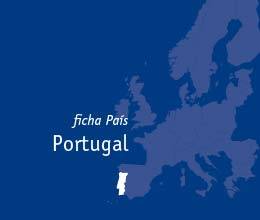On the 15th October 2018, the Government presented in Parliament, the draft law No. 156/XIII/2018 related to the Portuguese State Budget Proposal for the year of 2019. Following, we present a brief resume of the measures that we have considered more significant:
Corporate Income Tax (CIT)
- Special Payment on Account. It is proposed that CIT taxpayers who have fulfilled with their tax obligations in respect of the previous two fiscal periods may apply for waiver the special payment on account until the end of the 3rd month of the respective tax period. It is anticipated that the application will be made through the Portuguese Tax Authorities website and that the application will be valid for three consecutive periods, as long as the good compliance with tax obligations is maintained.
- Autonomous Taxation.Autonomous taxation rates due on expenses with passenger and mixed-used vehicles, commercial vehicles and motorcycles shall be increased as follows:
- 15% (currently 10%) for vehicles with an acquisition cost lower than €25,000;
- 37,5% (currently 35%) for vehicles with an acquisition cost of €35,000 or more.
- Tax Benefit (DLRR)It is proposed an increase of the tax benefit for the reinvestment of retained earnings. The maximum amount of retained and reinvested earnings will be increased to €10 million (currently €7,5 million). The maximum amount of retained and reinvested earnings will be increased by 20% in case of entities located in inland regions.
Personal Income Tax (PIT)
- Withholding Tax. A reduction of withholding tax on employment income derived from overtime work is foreseen, as such overtime income is not added to regular salary to determine the applicable withholding tax rate. Thus, as in the case of Christmas and holiday allowances, it is expected that the rate applicable to the income from supplementary work will be the same rate corresponding to the regular salary earned in the same month.
- Tax regime for former residents. It is proposed a new tax regime which consists of a 50% relief from taxation of employment income or self-employment income earned by persons who become Portuguese residents in 2019 or 2020 provided that:
- Have not been residents in any of the previous three years
- Have been residents in Portugal before December 31, 2015
- Have their tax situation regularized, and
- Did not apply for registration as a non-habitual residentThis tax relief is applicable for five years counted from the first year of residency in Portugal, expiring after this period.
Value Added Tax (VAT)
- Vouchers. It is proposed to introduce rules applicable to the taxation of vouchers, distinguishing between single-purpose vouchers (for which the elements necessary to assess the tax due are known at the moment of issuance) and the multi-purpose vouchers (for which the elements necessary to assess the tax due are not known at the moment of issuance).
Thus, it is proposed that single-purpose vouchers be taxed on the moment of issuance or transfer and that multi-purpose vouchers be taxed at the moment of transfer of the goods or supply of the services.
In what concerns to multi-purpose vouchers, the state budget proposal foresees that VAT is also due and payable at the moment that these vouchers expire.
Property Tax (IMI)
- Deadlines for payment. The amounts and deadlines for Property Tax payment shall be amended as follows:
- One single instalment in May for amounts up to €100
- Two instalments, in May and November for amounts from €100 to €500
- Three instalments, in May, August and November for amounts exceeding €500.
Tax Procedures (CPPT)
- Electronic Notifications. A new form of electronic notification from the Portuguese Tax Authorities (PTA) through its website is provided for taxable persons who:
- Being legally obliged to have an electronic mailbox, have not communicated it to the PTA
- Not being required to have an electronic mailbox have opted for electronic notifications on the PTA website
- If they already have an electronic mailbox, they exercise the option for electronic notification through the PTA website
- Are non-residents whose appointment of a tax representative in Portugal is optional and opt for notifications through the PTA website.
It is proposed that these electronic notifications should be considered to be effectively made on the 5th day after registration of the availability on the PTA website.




